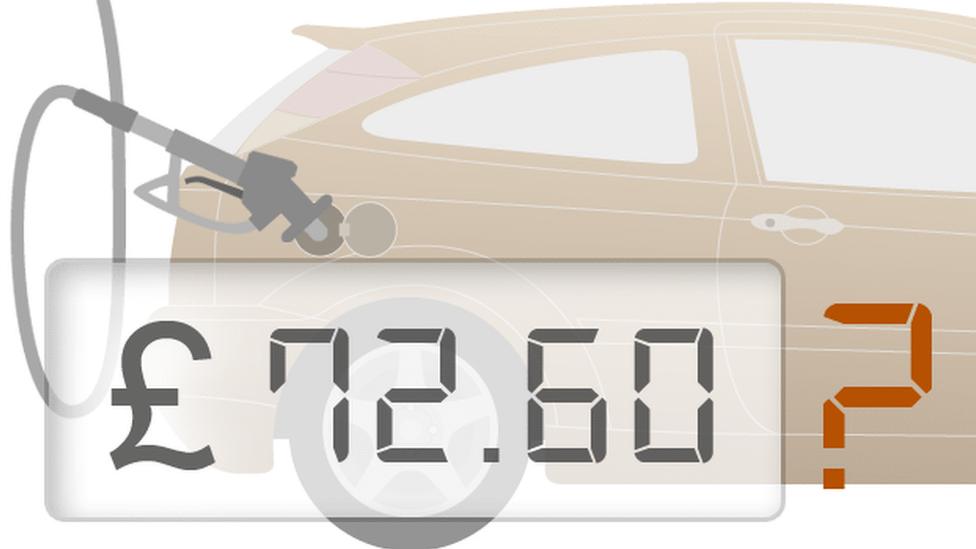Highways England launches campaign to stop tailgating
- Published
- comments
Almost nine out of 10 drivers say they have been tailgated on England's roads
A campaign has been launched to stop drivers on England's roads from tailgating - said to be one of the biggest bugbears for motorists.
More than 100 people are killed or seriously hurt each year in crashes caused by driving too closely to other vehicles, Highways England says.
And almost nine out of 10 drivers say they have been tailgated, with some left feeling "victimised".
Drivers are advised to allow a two-second gap between vehicles.

More than 100 people are killed or seriously hurt each year in crashes caused by tailgating, Highways England says
Ahead of the launch of its "Don't Be A Space Invader" campaign, Highways England surveyed 1,109 motorists and found that one in four had tailgated another driver in the last three months.
"It makes the driver in front feel targeted and victimised, distracting their attention from the road ahead and making them more likely to make a mistake," Richard Leonard, head of road safety at Highways England, said.
'Aggressive and intimidating'
In-car research using dashcams, facial recognition and heart monitors revealed reactions to tailgating included surprise, anger and contempt.
It was identified as the biggest single bugbear that drivers have about other road users.
Tailgating caused one in eight casualties in 2016 on motorways and A-roads in England, external, government statistics show.
Former Formula 1 world champion Nigel Mansell is backing the campaign, describing tailgating as "a driving habit I utterly deplore".
"Not only is it aggressive and intimidating, but there is absolutely no upside to it," he said.
"You will not get to your destination faster, you are not a skilled driver for doing it, and you are putting so many innocent people at risk".
Figures obtained by the BBC in 2014 showed that thousands of motorists had been fined for hogging lanes and tailgating.

You may also be interested in:
- Published14 September 2018

- Published13 September 2018

- Published11 September 2018

- Published5 September 2018

- Published23 December 2019

- Published16 August 2013

- Published30 April 2014
